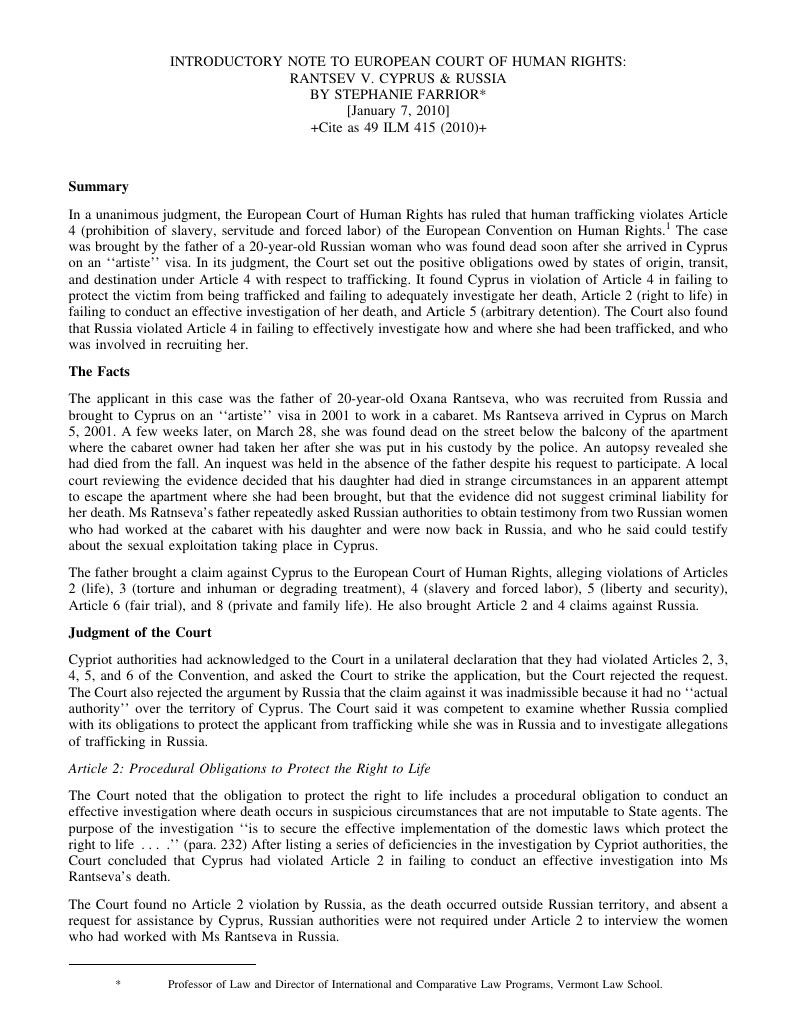Published online by Cambridge University Press: 27 February 2017

* This text was reproduced and reformatted from the text available at the European Court of Human Rights website (visited March 29, 2010) http://cmiskp.echr.coe.int/tkp197/view.asp?item=1&portal=hbkm&action=html&highlight=Rantsev&sessionid=50214265&skin=hudoc-en.
1 Rantsev v. Cyprus & Russia, App. No. 25965/04 (Eur. Ct. H.R. Jan. 7, 2010), http://www.echr.coe.int/ECHR/EN/hudoc.
2 Protocol to Prevent, Suppress and Punish Trafficking in Persons, especially Women and Children, supplementing the UN Convention against Transnational Organized Crime (entered into force Dec. 25, 2003). Both Cyprus and Russia have ratified the Palermo Protocol, which has 154 States Parties as of this writing.
3 Council of Europe Convention on Action against Trafficking in Human Rights, CETS No. 197, May 16, 2005. Cyprus ratified this Convention in 2007. Russia has not yet signed it. Forty-one member States of the Council of Europe have signed it and twenty-six have also ratified it.
4 Siliadin v. France, 2005-VII Eur. Ct. H.R. 289; 43 EHRR 16 (2006). This case involved a child domestic worker who had been trafficked. The Court found the circumstances did not meet the definition of slavery, but found the State in violation of a positive obligation under Article 4 to protect against servitude.